Martin Denny was an American pianist and composer best known as the "father of exotica." In a long career that saw him performing up to 3 weeks prior to his death, he toured the world popularizing his brand of lounge music which included exotic percussion, imaginative rearrangements of popular songs, and original songs that celebrated Tiki culture.
Exotica is a musical genre, named after the 1957 Martin Denny album of the same name that was popular during the 1950s to mid-1960s with Americans who came of age during World War II. The term was coined by Simon "Si" Waronker, Liberty Records co-founder board chairman. The musical colloquialism exotica means tropical ersatz, the non-native, pseudo experience of insular Oceania, Southeast Asia, Hawaii, the Amazon basin, the Andes, the Caribbean and tribal Africa. Denny described the musical style as "a combination of the South Pacific and the Orient...what a lot of people imagined the islands to be like...it's pure fantasy though." While the South Seas forms the core region, exotica reflects the "musical impressions" of every place from standard travel destinations to the mythical "shangri-las" dreamt of by armchair safari-ers.
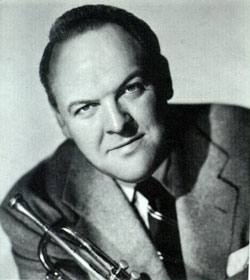
Edward William May Jr. was an American composer, arranger and trumpeter. He composed film and television music for The Green Hornet (1966), The Mod Squad (1968), Batman, and Naked City (1960). He collaborated on films such as Pennies from Heaven (1981), and orchestrated Cocoon, and Cocoon: The Return, among others.
Lounge music is a type of easy listening music popular in the 1950s and 1960s. It may be meant to evoke in the listeners the feeling of being in a place, usually with a tranquil theme, such as a jungle, an island paradise or outer space. The range of lounge music encompasses beautiful music-influenced instrumentals, modern electronica, while remaining thematically focused on its retro-space age cultural elements. The earliest type of lounge music appeared during the 1920s and 1930s, and was known as light music.

Come Dance with Me! is an album by vocalist Frank Sinatra, released in 1959.
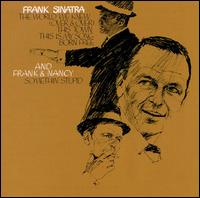
The World We Knew, also known as Frank Sinatra, is a 1967 studio album by American singer Frank Sinatra.

Alvin McBurney, known by his stage name Alvino Rey, was an American jazz guitarist and bandleader.

Once More with Feeling is a 1960 studio album by the American singer Billy Eckstine. It was arranged by Billy May and produced by Teddy Reig.
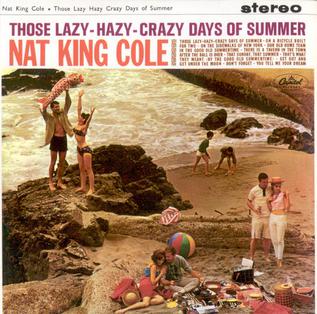
Those Lazy-Hazy-Crazy Days of Summer is a 1963 album by Nat King Cole, arranged by Ralph Carmichael. The album reached #14 on Billboard's LP chart.

Let's Face the Music! is a 1964 studio album by Nat King Cole, arranged by Billy May. It was recorded in November 1961, and released three years later.
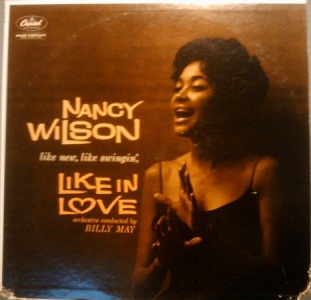
Like in Love! is the debut album by the American vocalist Nancy Wilson, it was released in April 1960 by Capitol Records, and arranged by Billy May.
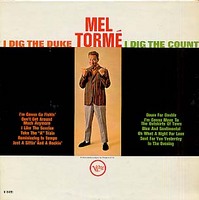
I Dig the Duke! I Dig the Count! is a 1962 album by Mel Tormé, recorded in tribute to Duke Ellington and Count Basie.
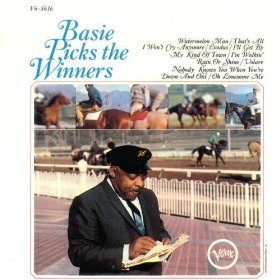
Basie Picks the Winners is a 1965 studio album by Count Basie and his orchestra.

Big Band Specials is a 1962 album by June Christy, with tracks arranged by Bill Holman, Shorty Rogers and husband Bob Cooper.

Takeshi "Tak" Shindo was an American musician, composer and arranger. He was one of the prominent artists in the exotica music genre during the late 1950s and early 1960s. Shindo also founded a dance band in 1947 and was a frequent lecturer and writer on Japanese music. He first gained prominence for his work on the 1957 motion picture Sayonara, served as the musical director for the television series Gunsmoke, and composed theme music for The Ed Sullivan Show and Wagon Train. He is most remembered for the exotica albums he released from 1958 to 1962, including Mganga! The Primitive Sounds of Tak Shindo (1958), Brass and Bamboo (1959) and Accent on Bamboo (1960). He also released several albums in Japan during the mid-1960s that blended American and Japanese musical traditions. During the 1950s and 1960s, Shindo was a columnist for the Rafu Shimpo covering classical and popular music. In 1980, Shindo made a documentary film, Encounter with the Past, about the Manzanar relocation camp where he was relocated in 1942 as part of the Japanese American internment policy.

Orienta is an album by The Markko Polo Adventurers released in 1959. The album was produced by Simon Rady, arranged and conducted by Gerald Fried and recorded in stereo in Hollywood, California. The album uses a combination of sound effects and Asian-inspired music to tell humorous vignettes. Its suggestive cover art features a photograph by Murray Laden.
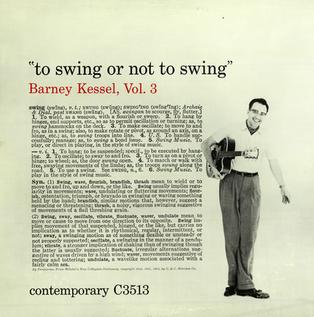
To Swing or Not to Swing is an album by guitarist Barney Kessel released on the Contemporary label which was recorded at sessions in 1955.

El Señor Bing is a long-playing vinyl album recorded in June 1960 by Bing Crosby for his own company, Project Records. It was released by MGM Records (E-3890P) in October, 1961. The album consists of ten tracks each consisting of two songs set to a Latin American rhythm. Billy May & his Orchestra provided the musical accompaniment. The album was later issued under the title "Bing Goes Latin" MGM Records – 2354 028.
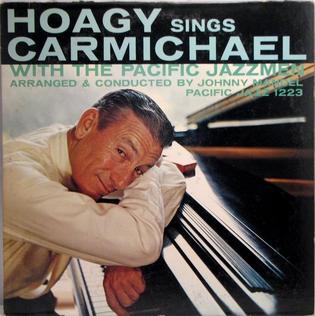
Hoagy Sings Carmichael is an album by composer and vocalist Hoagy Carmichael recorded in 1956 and released on the Pacific Jazz label. The album features Carmichael's last significant recordings.

10 Saxophones and 2 Basses is an album by composer, arranger and conductor Pete Rugolo featuring performances recorded in 1961 and first released on the Mercury label as part of its audiophile Perfect Presence Sound Series.

















